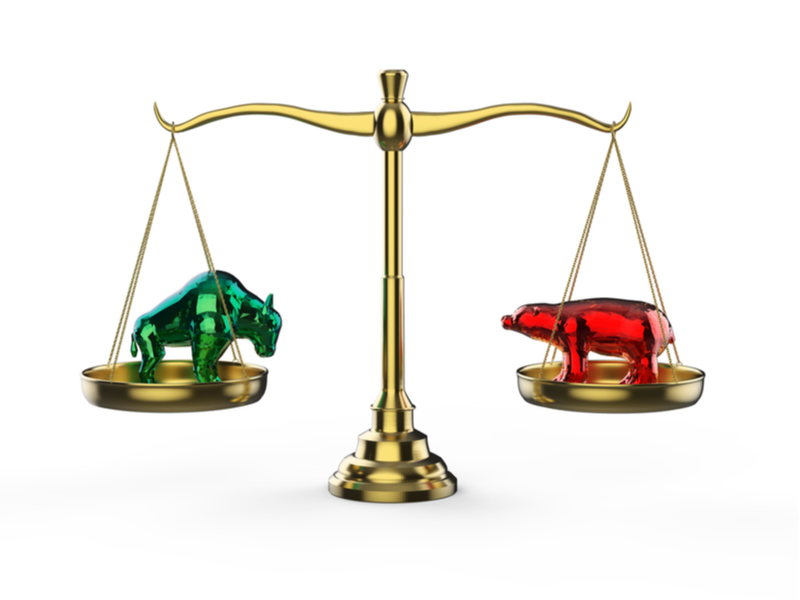
We all know about two of the most popular indices in India: the Sensex and the Nifty. The Sensex is based on a free-float market-weighted index that takes the average movements of the top 30 companies that are listed on the BSE. These companies are the largest, most actively traded and representative of different sectors in the economy. Similarly, Nifty consists of the 50 most actively traded stocks.
When we look closely at the weights of different sectors in the Sensex, we can see that it is heavily concentrated towards banking, finance and Information Technology. The same goes for the Nifty index. To avoid such concentrated representation, a new concept of equal-weighted index funds was launched.
Here, we will discuss Equal Weighted index funds in detail and also highlight important factors that investors should know.
What is an equal-weighted index?
An equal-weighted index in the stock markets is an index that places equal value on all the stocks included in it. Thus, every stock that is part of the index will have the same significance while estimating the index’s value. This is irrespective of whether the listed company is big or small or a company’s stock value.
Unlike a capitalisation-weighted index, an equal-weighted index places all the stocks in it on the same level while determining the index’s value. In the case of a capitalization-weighted index, higher-value stocks and large-sized companies enjoy higher weightage in the index’s makeup and therefore tend to dictate the index performance.
What is an equal-weighted index fund?
An equal-weighted index fund is similar to an index fund or an ETF, where the fund invests primarily in the constituent stocks of the underlying or benchmark index. Equal-weighted index funds invest in stocks of publicly traded companies and distribute the pooled funds equally among all the stocks of the underlying index. Thus, the performance of each stock equally impacts the index fund performance.
Difference between equal-weighted index fund and the regular index fund
World over, the standard followed by stock market indexes is to give weights to stocks as per the market capitalizations of the companies included in the index.
Thus, if an index fund is following the NSE Nifty index, it weighs stocks by market capitalization and invests more in some companies than others. Irrespective of the overall size of companies that are included in an index, whether small-cap, mid-cap, or large-cap, the index fund favours the largest companies that are included in the index.
Pros and cons of equal-weighted index funds
While learning about the concept of equal-weighted index funds and before investing in them, investors must carefully weigh the associated pros and cons. Some of them are listed here:
Advantages:
- Equal-weighted indexes offer better diversification as compared to capitalization-weighted indexes. Thus, these involve comparatively lower risk.
- Equal-weighted funds are based on the premise of value investing. Due to this superior investing strategy, these funds are preferred by analysts and investors.
Disadvantages:
- These funds experience a higher portfolio turnover resulting in higher net transaction costs. Investors may, therefore, have to deal with less favourable tax treatment when investing in these.
- During bear market conditions, these funds are more vulnerable to volatile and sudden fall. In comparison, since market-cap-weighted funds are heavily invested in large-cap stocks, they are less likely to experience instability during bear markets.
Who should invest in equal-weighted index funds?
Equal weighted index funds are best suited for the following:
- Investors who prefer a balanced portfolio with sufficient diversification and stability during rough market conditions can consider investing in equal weight index funds that track indexes like Nifty 50 and Nifty 100.
- Investors who prefer to have exposure to some of the top-quality stocks, including blue-chip companies, while giving equal weight to all market caps can invest in these funds.
- Investors who prefer the passive investing strategy without complete stock concentration.
- Since higher diversification usually means lower risk, these funds are best suited for investors who have a medium to low-risk appetite.
Conclusion
Equal-weighted index funds, although new to the Indian markets, have been known to exist in the international markets. Equal-weighted index funds can be good alternatives to getting exposure to the overall market value. The choice between equal-weighted index funds and regular market capitalization-weighted index funds comes down to an investor’s financial goals, risk appetite, and investment portfolio construct.
FAQs
The Nifty50 Equal Weight Index Fund follows the benchmark index that is based on a weighting strategy where all the 50 companies in the index are weighed equally, irrespective of their market size.
Index Funds are passive mutual funds that replicate the composition of the chosen benchmark index. These are passively managed, as the fund manager doesn’t play an active role in investment selection. Index funds mostly aim to follow the performance of the benchmark index rather than beat it.
To invest in some of the top-performing index funds, investors can explore the Fisdom app, which is available for free download. This app allows access to a range of mutual fund schemes with an easy KYC and investment process.
Like any equity-based mutual fund, equal-weighted index funds also concentrate on equity investments and therefore carry some amount of risk. The risk level could differ across funds, however, these are relatively less risky as compared to actively managed equity funds.
Any passive mutual fund returns are dependent on many factors, such as tracking error, benchmark index performance, market volatility, etc. Therefore, to gauge whether an equal-weighted index fund can offer good returns, one must consider all these factors along with historical performance.


























